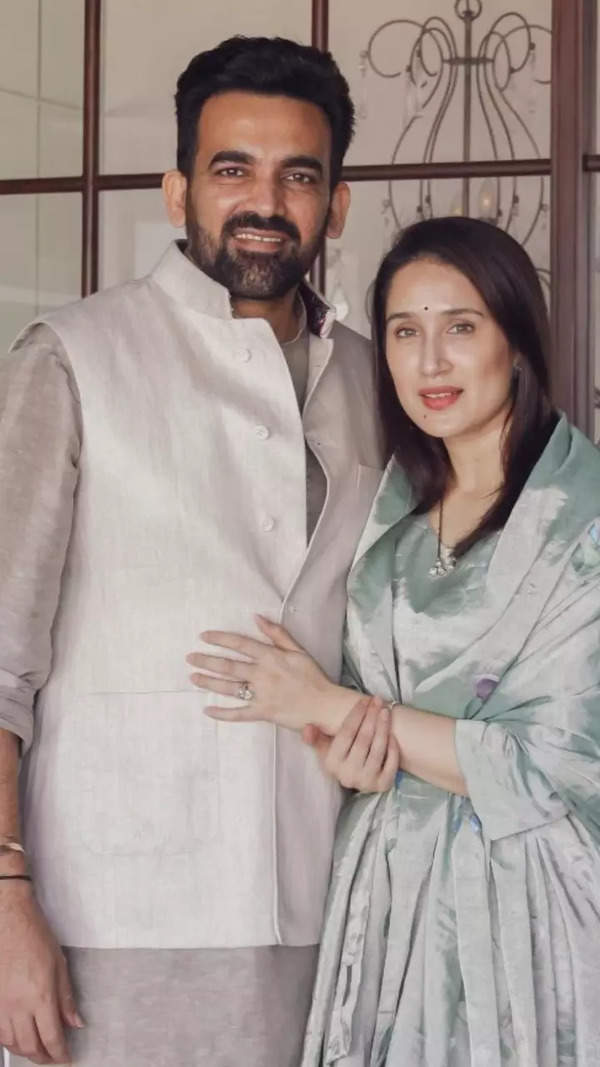- News
- India News
- 'If you de-notify waqf by user, it'll be an issue': SC to Centre during hearing on Waqf Amendment Act, 2025
Trending
'If you de-notify waqf by user, it'll be an issue': SC to Centre during hearing on Waqf Amendment Act, 2025
The Supreme Court addressed petitions challenging the Waqf (Amendment) Act, 2025, raising concerns about the removal of 'waqf by user' and the inclusion of non-Muslim members in Waqf boards. The court questioned the practicality of requiring registered deeds for old mosques and sought clarification from the Centre on non-Muslim representation.
NEW DELHI: The Supreme Court on Wednesday heard multiple petitions challenging the constitutional validity of the Waqf (Amendment) Act, 2025.
It noted that undoing "waqf by user" would create several issues and sought the central government's reply to over 100 petitions challenging the Act. However, it refused to put a stay on the operation of the law.
On inclusion of non-Muslim members in the Central and state Waqf boards, the apex court asked if the BJP-led Centre would "allow Muslims to be part of Hindu religious trusts". It ruled that ex-officio members could be appointed regardless of religion but others had to be Muslims.
The court is set to hear the matter at 2pm on Thursday.
What SC said on removal of 'waqf by user' provision?
The top court noted that most of the mosques were built during 14th and 15th century and and producing a "registered deed" was impossible.
"Many of the masjids are created in 14th or 15th centuries. To require them to produce a registered deed is impossible. Most of the cases, say Jama Masjid Delhi, the waqf will be waqf-by-user," CJI Sanjiv Khanna said. "If you are going to de-notify waqf-by-user properties, it will be an issue," he added.
Kapil Sibal had argued that the abolition of the 'waqf by user' provision struck at the core of religious practice, asserting, "Its my integral part of religion, its recognised in Ram Janbhoomi judgment. Problem is, they will say if a waqf is created 3000 years ago, they will ask for deed."
The removal of the provision is another point of contention driving the anti-Waqf protests. Under the Waqf Act of 1954, properties could be designated as waqf if they had long been used for religious or charitable purposes, even in the absence of official documentation. The amendment does away with this classification, raising concerns and ambiguity over the legal status of many such properties.
What SC said on inclusion of non-Muslim in Waqf council?
The apex court has sought clarification over non-Muslim members in the Waqf council. "Will you allow Muslims to be part of Hindu religious trusts," it asked. It said that ex-officio members could be appointed regardless of their faith but others members had to be Muslims.
According to the Act, in the Central Waqf Council, up to two of the 22 appointed (non-ex officio) members may be individuals from non-Muslim communities. State Waqf Boards may include up to two non-Muslim members among the 11 appointed (non-ex officio) positions.
What SC said on violent protests against Waqf Act?
Addressing the anti-Waqf protests that turned violent in Bengal's Murshidabad killing three, SC said that it was "very disturbed".
"Once Supreme Court is seized of the matter, this should not happen," the CJI said.
Violent protests erupted in Murshidabad on April 11 over the contentious Waqf (Amendment) Act, leading to the deaths of three individuals, injuries to many others, and significant property damage.
According to the West Bengal Police, 150 people have been arrested so far in connection with the violence, and security has been stepped up with heavy police deployment in affected areas such as Samserganj and Dhuliyan.
The BJP-led central government recently notified the Waqf (Amendment) Act, 2025, following its passage in Parliament amid intense debates in both houses. The bill received President Droupadi Murmu’s assent on April 5. It was approved in the Lok Sabha with 288 votes in favour and 232 against, while in the Rajya Sabha, it passed with 128 members supporting and 95 opposing it.
However, a total of 72 petitions have been filed challenging the validity of the Act. Petitioners include AIMIM leader Asaduddin Owaisi, the All India Muslim Personal Law Board (AIMPLB), Jamiat Ulama-i-Hind, the DMK, and Congress MPs Imran Pratapgarhi and Mohammad Jawed. In response, the Centre filed a caveat in the Supreme Court on April 8, requesting to be heard before any orders are issued.

About the Author
TOI News DeskEnd of Article
FOLLOW US ON SOCIAL MEDIA








